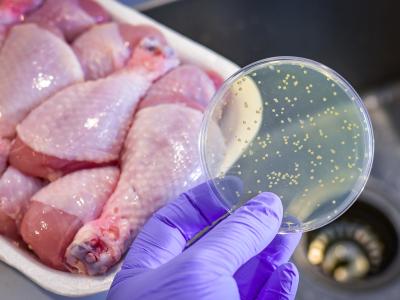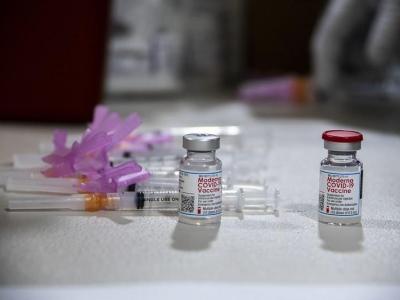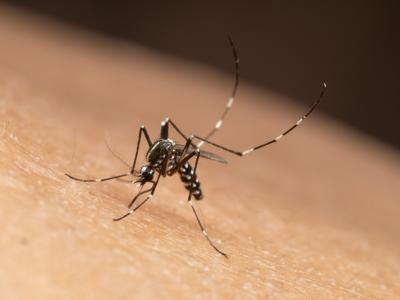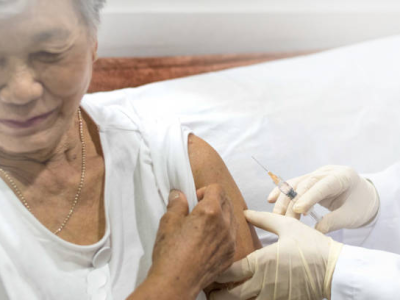Sierra Leone begins Ebola-free countdown
Sierra Leone's last two Ebola patients were released from treatment yesterday, starting the 42-day countdown toward Ebola-free status, Xinhua, China's state news agency, reported today. The patients were both released from a treatment center in Makeni, in the northern part of the country.
The countdown to being declared free of Ebola, typically achieved when two incubation periods have passed with no new cases, is Sierra Leone's second. Its first countdown began Aug 24, only to end about a week later when a 67-year-old woman died from the disease. Her infection sparked a cluster of cases, followed by an unrelated case in Bombali district, that of a 16-year-old girl who was believed to have been exposed to the virus by an Ebola survivor.
Sep 28 Xinhua story
In related news, New Link Genetics recently announced that its subsidiary has received a $8.1 million award from the Defense Threat Reduction Agency (DTRA), part of the US Department of Defense, to support the development of VSV-EBOV, an experimental vaccine against Ebola.
The vaccine, originally developed by researchers at the Public Health Agency of Canada, is in trials in the West Africa outbreak region. NewLink Genetics, based in Ames, Iowa, originally licensed the vaccine, and has licensed research, development, and marketing to Merck to help accelerate development.
The contract has a future option worth $5.2 million to support various development activities, NewLink said in a Sep 24 press release.
Sep 24 NewLink Genetics press release
PAHO notes 12,000 new chikungunya cases
The chikungunya outbreak in the Caribbean and the Americas grew by 12,694 cases, the Pan American Health Organization (PAHO) said in an update late last week. The increase could be a sign of increased disease activity, as the three previous weekly updates included 7,156, 4,857, and 3,085 new cases, respectively.
The overall outbreak total now stands at 1,734,882 cases, PAHO said in a Sep 25 update. The total includes 588,113 cases in 2015. The number of outbreak-related deaths stayed the same, at 62 for the year.
Nicaragua, reporting on 6 weeks of data, had the largest increase, with 6,778 new cases, for a total of 46,912 so far this year. El Salvador was second, with 3,565 new cases and 39,721 total. That country hadn't reported cases for 2 weeks.
Colombia, which has consistently reported the most cases for months, had 1,272 new cases last week, bringing its 2015 total to 333,504. Mexico had 694 new cases, for a total of 7,025, and Puerto Rico had 521 new cases, for a total of 1,386. As in past weeks, many countries have not provided a chikungunya update for weeks.
The outbreak began in December 2013 with the detection of the Americas' first locally acquired cases on St. Martin in the Caribbean.
Sep 25 PAHO update
And then there were 2: Nigeria declared non-endemic for polio
Polio is no longer endemic in Nigeria, the World Health Organization (WHO) declared on Sep 25, leaving Pakistan and Afghanistan as the world's only remaining endemic countries.
The Global Polio Eradication Initiative (GPEI), the public-private partnership leading the effort to eradicate polio, called this a "historic achievement" in global health, the WHO said in a press release. Nigeria has not reported an infection of wild poliovirus since Jul 24, 2014, and all laboratory data have confirmed that a year has passed without any new cases.
As recently as 2012, Nigeria accounted for more than half of all polio cases worldwide, the WHO said. Since then, a concerted effort has brought cases to zero.
Sep 25 WHO news release
Cholera outbreak hits five Iraqi governorates
A cholera outbreak in Iraq has sickened people in at least five governorates, with 120 lab-confirmed cases so far, the WHO said today in a statement. The outbreak strain is Vibrio cholera 01 Inaba.
The five affected governorates are Baghdad, Babylon, Najaf, Qadisiyyah, and Muthanna.
Early findings from the investigation suggest that contaminated water is the source of the outbreak. The WHO said Iraq's health ministry has taken new steps to contain the outbreak and is collaborating with the WHO.
The cholera outbreak is Iraq's first since 2012 and is spreading in southern provinces along the Euphrates River, according to a Sep 23 Reuters report. The country's water and sewage systems are outdated, and years of war and neglect have hampered infrastructure development. A health ministry spokesman said low water levels, winter flooding that involved sewage contamination, and high summer temperatures have likely played roles as well.
Sep 28 WHO statement
Sep 23 Reuters story
Encouraging results reported for 5-serogroup meningococcal vaccine
In the first study to address immune response prompted by a meningococcal vaccine that targets five strains, rather than the normal four, found that the different formulations tested were immunogenic against serogroups A, C, W, and Y, along with the additional serogroup B.
The phase 2 trial was conducted by an international group of researchers, including those from Novartis, the company that is developing the vaccine. Results appear in the October issue of The Pediatric Infectious Disease Journal.
Current vaccines against Neisseria meningitidis typically cover serogroups A, C, Y, and W. Serogroups that cause disease, however, can vary by country and evolve over time, making for an unpredictable health threat.
Monovalent vaccines against meningococcal serogroup B have been approved in the United States and other countries, and Novartis is exploring whether a combination vaccine that includes all five strains could simplify vaccination and improve coverage. The quadrivalent vaccine is required by many colleges, but serogroup B has been implicated in several campus outbreaks over the past few years.
In the current study, researchers assessed antibodies against all five serogroups up to 10 months after patients completed a two-dose series. They also looked at the immunogenicity and safety after a third dose of the five-serogroup vaccine.
The researchers found that all the formulations tested were immunogenic against the five serogroups, with greater levels seen for those that contained outer membrane vesicles. A third dose increased immune response, but antibodies waned to levels seen with the two-dose regimen 5 to 6 months after vaccination. The team found no safety concerns.
October Ped Infect Dis J abstract













